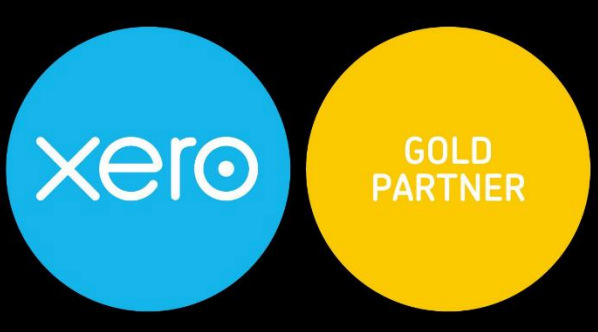Blog

Hi Everyone, Welcome to my final newsletter of 2024—and what a year it’s been! Reflecting on the past 12 months, it’s clear that 2024 has been a highly consequential year, even in an age when we’ve had quite a few once-in-a-generation events. It’s been a whirlwind for me, from attending thrilling sporting events like the Olympics to commenting on major financial shakeups and adding new services to the Enso brand . We saw the internet go down and an unexpected Oasis reunion (not to mention their remarkable ability to part me from my money). On the same note, we’ve had a change of government with all the financial ramifications of that democratic choice already playing out. On the business front, my predictions about AI transforming every aspect of our lives were spot on. This technology now influences how we engage with commerce, government, and entertainment. However, I see this technology making the management of your business finances increasingly insightful and responsive, which is precisely why I started Enso in 2018. Of course, we have the upcoming inauguration of an orange-tinged POTUS on January 20, 2025, which promises to bring even more twists to an already unpredictable landscape. But before we face 2025, let’s focus on the festive season. The holidays are an insane period for many of my client’s businesses. So, to help out and as a follow-up to the success of my TikTok gift list for 2023 , here are my prime picks for this Christmas. It might save you some time and effort, especially if you find gift buying a chore. You’re welcome!

Hi Everyone. Welcome to November 2024, which we enter on the back of the first Labour Budget in over 14 years. That’s why this newsletter is slightly behind the curve: I wanted to consider what impacts this fiscal event brings and how it might affect my clients. What a statement it was taking over an hour to present. It was long, detailed, radical, risky, and much-briefed to avoid the market-melting impacts of the Truss/Kwarteng budget. This meant macro impacts were marginal, with a few basis points on Gilts and temporary dips in the FTSE and the value of Sterling on international markets. Overall, it’s not too bad; we’ve seen much worse, but we must monitor these measures going forward. As the dust settled, we saw historic highs in taxation and higher borrowing levels via a fiscal rule change. But it was very much a statement of intent signalling the new government’s determination to stabilise and expand our indebted and tired economy after 14 years of Tory rule. Equally historic, it was the first Budget delivered by Rachel Reeves, the UK’s first female Chancellor. Underpinning it all was Labour’s vision for growth based on equality of opportunity, devolved power distribution, innovation, and green energy. As optimistic as the Budget seems in intent, like so much in life, it comes at a cost, and SMEs are now central to how the Chancellor will fund Labour’s economic mission. So here’s my summary and thoughts on the host of changes Reeves announced and what these might mean for you. Hold on to your hats!

How to Save Tax on Private School Fees Using a Family Trust – Especially as VAT on Fees Rises Private school fees in the UK are already a significant financial commitment, and with the planned introduction of VAT on private school fees, the cost is set to rise even further. However, with careful tax planning, families can reduce this burden and save up to £5,000 per child per year using a family trust. VAT on Private School Fees – What’s Changing? The UK government has announced plans to remove the VAT exemption on private school fees, meaning that fees could increase by 20%. For many families, this could add thousands of pounds per year to their education costs. For example: • A school charging £15,000 per year will see fees rise to £18,000 with VAT added. • A school charging £25,000 per year will rise to £30,000 under the new VAT regime. This increase makes tax-efficient planning even more critical for parents looking to mitigate costs.

Hi everyone. I hope this newsletter finds you in the finest of form. It’s February 2025, and the festive season is a distant memory. The new year is in full swing, and what a year it’s already been. “May you live in interesting times” is an English idiom often said to be a translation of an old Chinese curse. The irony lies in the notion of “interesting,” as it usually alludes to times typically marked by difficulty and turmoil. And ‘interesting times’ is possibly an understatement regarding the new incumbent of the White House. Whatever your thoughts on the greatness of this development or otherwise, let’s agree that the ‘interesting times’ arrived very quickly and will continue for quite some time. Well, at least four years, but the repercussions could be around for much longer. It’s early days, but we must consider what some of DT’s directives might mean for investors and UK SMEs. The US may be far from us, but its reach and, by extension, DT’s influence is practically unlimited. So, having a working knowledge of the issues is better than being blown around haplessly by the winds of fate. So, baton down the hatches, everyone; we’re in for a wild ride.

Happy New Year everyone. I hope your festivities passed as you hoped. Whether it was to either rest and recharge or become a social butterfly attending many parties and gatherings. However, it panned out for you; I hope you had a ‘good-un’! And now as 2025 dawns, it’s time to shake off the yuletide detritus, pack away the decorations and sell your unwanted presents on eBay! You might feel a little sad. It’s all over, you sigh. Don’t worry; that’s normal, but it’s time to trim our sails for the coming year and dive headlong into the promise of what’s to come. Many will commit to positively changing their lives at the start of the year. These so-called resolutions often founder within a few days. But don’t worry, that’s normal, too. You’re not alone in seeing these aspirations turn to dust as they rub against ‘real life’. But for those who follow through and keep to your commitments, I salute you. But maybe you could do the same exercise for your business. Every new year is brimming with opportunities for business growth, refreshed strategies, and new ideas, and always looking for opportunities to have a laugh along the way. As we know, the Trump administration is taking the reins in the US, which means the stage is set for an exciting ride for all of us. There’ll be opportunities and challenges galore. So, how can we get our business match fit for what’s to come? Here are some industry-tested pointers to help you take on the New Year and emerge as a winner. Let’s get into it!






